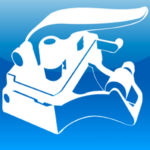Sound Devices Goes On Ride With Mad Max: Fury Road
May 29, 2015, 06:16 AM
https://www.aotg.com/sound-devices-goes-on-ride-with-mad-max-fury-road/
SOUND DEVICES GOES ON WILD RIDE
WITH CAST AND CREW OF MAD
MAX: FURY ROAD
Sound Devices 7-Series
Proves Vital in High-Speed Production
Across the Hot, Sandy Landscape of Namibia
NAMIBIA, AFRICA, MAY 28, 2015 — As
the title implies, Mad Max: Fury Road
is a mad and furious, high-action post-apocalyptic film set in a desert
wasteland. The plot calls for a warlord’s harem to race across the sandy landscape
in a desperate, high-speed bid for freedom from his ruthless henchman. Both escapees
and their pursuers form an “armada†of armored vehicles. Hidden within that sandstorm
were members of the audio crew, trying to capture every bit of dialogue and
sound effects, all while in motion. Faced with such a monumental challenge,
veteran Production Sound Mixer Ben Osmo and Vehicle FX Recordist Oliver Machin turned
to Sound Devices’ 7-Series of digital
audio recorders.
“I used four 788T-SSDs plus four CL-8s, and did mix down to each
recorder, plus a two-track mix down to a 744T
for dailies,†said Osmo. “I also had a 788T rigged in my sound cart and kept
that in a larger truck for a couple of months, next to video split.†In
addition to that equipment, Oliver Machin brought a sixth 788T in a bag to
record extra vehicle FX when necessary.
Osmo said, “The use of
multiple 788Ts became necessary when the challenge was to record multiple
tracks under extreme conditions. The 788Ts were very versatile. As well as ISO
tracks and mix downs, we were able to set up mix minuses with AUX sends into a
monitor mixer. We had available 42 channels of radio mics. This was because of
the repeater systems and different RF blocks in play, so we could pre-rig
vehicles ahead of time, and in my van, I would then cross over to the correct
receiver blocks once they were in action.â€
Machin said, “It was
kind of ridiculous trying to keep track of that many transmitters. We were planting
mics on the vehicles…and Mark Wasiutak would also travel with a boom mic to
grab the slates and sync effects at the time with the shots.â€
There was also a
separate action unit sound team, using a more simplified system, still pursuing
the action and—because the vehicle sounds were so loud—providing usable guide
track dialogue for future automated dialogue replacement (ADR).
Microphones were
hidden in the cabin and on the principle cast, in the engine bays, near
exhausts, on top of the “War Rig†(the main characters’ get-away vehicle), and
on a vast number of supporting cast members in other vehicles. Capturing all of
that audio would be a major task on a normal sound stage, but portability
requirements for Fury Road would not
allow for a typical film-studio audio setup, so the crew had to get creative.
“We had a 4x4
vehicle,†said Machin, describing Ben Osmo’s van they dubbed the Osmotron.
“Instead of having sound carts traditionally…that wasn’t going to cut it on a
road movie traveling at 80- or 90-miles an hour across the desert. Nobody was
going to keep up, so we built into his vehicle huge racks of radio mic
receivers.â€
“It was lucky that I
had all SSD 788Ts,†Osmo said. “So, even though most of the filming was off
road, they performed exceptionally well under extreme vibration.†Separately, a
744T was suspended in a pouch so it could absorb the shocks of the Namibian
desert during the six-mouth-long production schedule. “They never skipped a
beat, especially when travelling and recording on very bumpy and dusty
terrain.â€
Adding to the
complexity, the cast members were essentially in a rusty box, so RF reception
had to be rethought, making repeaters sometimes necessary. The crew set up three
multiplex systems (which Ben designed with assistance of RF experts) with RF
combiners and high-powered transmitter boosters to maximize the range of 1-to-3
kilometers, not only for recording purposes but also to aid communication
behind the scenes.
“As we travelled long
distances, the walkie talkie repeater towers were often out of range,†Osmo
said, “so I was asked to provide my comms in the Lectrosonics radio mics and
IFB systems to Director George Miller and First AD and Co-Producer, PJ Voeten,
as they also often were great distances apart—at least 500 meters to 1.5
kilometers—and they were able to have hands free communication. Cinematographer
John Seale and two of his operators were on this system, and the first AC camera
people, as well.â€
Comms were also used
to feed audio to IFB receivers for cast members, including Immortan Joe played
by Hugh Keays-Burne. As sound mixer, Osmo also had to feed a musical mix to
musicians armed with ear wigs to aid them in keeping time to the beat while
riding atop the “Doof Wagon†vehicle, and playing instruments, such as drums
and a flaming guitar.
When the action call
came, only the camera tracking vehicles, SFX, and the lonely sound van were in
pursuit. Mark Wasiutak, key boom operator, travelled on the hero vehicles when
cameras were on board. He was able to troubleshoot with assistance from the
rest of the sound crew whenever the armada was stopped for checks.
“It was like a whole
armada,†Machin said. Once it stopped, “Every department was jumping in their
4x4s and travelling to assist. I mean literally they would be going five, six,
seven kilometers across the desert, turn around and come back again, or go
farther.†The whole unit relocated to new technical base camps, then waited for
the cue to go again. “It was quite a feat to make that happen.â€
The 788T-SSD is equipped with eight full-featured microphone
inputs and twelve tracks of recording. In a compact, light-weight, stainless
steel and aluminum chassis, the 788T-SSD accommodates individual controls and
connectors for each of its eight inputs, as well as numerous additional I/O and
data connections. Mounted to the 788T-SDD, the optional CL-8 accessory is a
powerful mixing control surface, providing rotary faders for each of the
recorder’s eight inputs, plus input routing and setting control.
The 788T-SSD comes with a factory-supplied, high performance
solid-state drive, which provides several important benefits including vast
internal storage capacity, continuous recordings of over 60 hours of 24-bit,
eight-track audio at 48 kHz, plus better immunity to shock, temperature
extremes and zero acoustical output. In
addition to its superior shock immunity, the SSD used in the 788T-SSD also
enhances data transfer due to its increased transfer speed versus a spinning
hard drive.
Another benefit of the 788T is its reliable timecode jamming
capabilities, making it right at home in complex multi-camera sync-sound
productions like Mad Max: Fury Road. Although
the 788T has an on-board, high-accuracy Ambient timecode generator, while on
location for Fury Road, the crew used
Ambient master clocks with GPS antennas set to Greenwich Mean Time. All cameras
were supplied with Lockit boxes and Deneke slates with Ambient Lockits.
Osmo said, “My 788T recorders and the 744T were jammed from
the same Ambient master clock. All the recorders synched up beautifully and
never missed a beat.â€
Mad Max: Fury Road, which debuted May 2015 in theaters around the globe, is the
fourth film in George Miller’s Mad Max franchise and the first film in that
franchise in three decades. It stars Tom Hardy as Mad Max, replacing Mel Gibson
in the original title role, along with Charlize Theron, Nicholas Hoult, and
Hugh Keays-Byrne.
Sound Devices, LLC designs and manufactures portable audio mixers, digital audio recorders and related equipment for feature film, episodic television, documentary, news-gathering, live event and acoustical test and measurement applications. Video Devices is a brand of Sound Devices, offering digital video recorders, and related products, that address a range of multiple-source video productions, including fast-paced, mission-critical studio applications, live sports, live events, and mobile production.
Founded in 1998, the company designs and manufactures both brands at their Reedsburg, Wisconsin, headquarters with additional offices in Madison, Wisconsin and Berlin, Germany. For more information, visit the Sound Devices and Video Devices websites: www.sounddevices.com and www.videodevices.com.
Sound Devices 7-Series Proves Vital in High-Speed Production Across the Hot, Sandy Landscape of Namibia
#video devices#sound devices#mad max
Newest from AOTG.com
-

Daniel George McDonald on Editing Cheer's Season 2 Finale
Daniel George McDonald sits down to discuss creating the finale for Cheer Season 2.
-

Editing The Black Lady Sketch Show
Gordon sits down with the editorial team of The Black Lady Sketch Show to discuss their approach to ...
-

Philip White on Crafting A Madea Homecoming's Music
Gordon sits down with Philip to discuss his work with Tyler Perry and his latest film A Madea Homeco...
Site Links
Tools
Sister Sites
© 2007-2024 www.aotg.com Ver. 3.0 All Content created and posted by Art of the Guillotine users Art of the Guillotine graphics, logos, designs, page headers, button icons, scripts, and other service names are the trademarks of Art of the Guillotine Inc. Use of this material outside of this site is strictly prohibited.